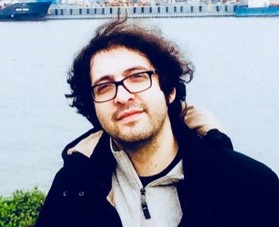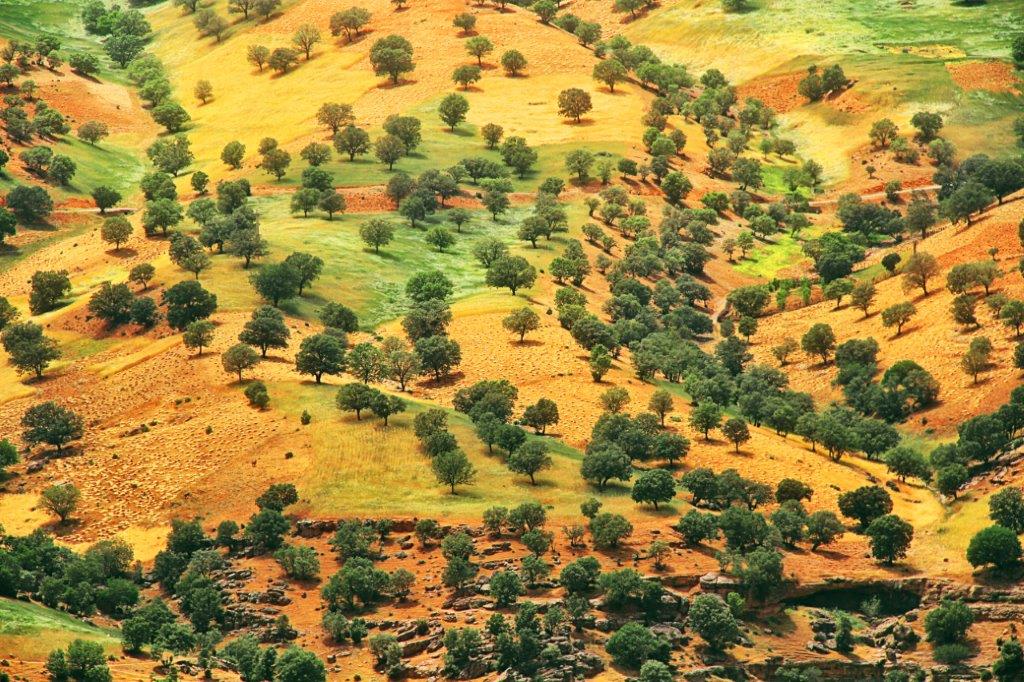Great to have you back!

1
Videos
About
Highlight of qualifications:
• Master of Arts (M.A) in music composition
• Ranked 1st in the 26th Fajr National Music Competition, Tehran, Iran in 2010
• Lecturer at the Music School of Arts, University of Tehran from 2011 till present
• Taught undergraduate and graduate level courses in Music Composition, Orchestration, Piano and Form
• Composer, Pianist
Selected work:
• Symphony No.1 in 3 movements
• Symphonic movement No.1
• Symphonic movement No.2 (Based on Iranian folk music)
• Piano Trio
• Elegy for piano
• Composition for String Orchestra
• 3 composed pieces for Piano
• 4 Prelude & Fugue for String orchestra
• …
Sheets
Interview
What does music mean to you personally?
From the view point of encountering with this term, for me it is possible to look at this issue from two points of view. When composer’s percipience is concentrated on the music concept, for me music means to seek among extreme choices and struggle to reach an eventual selection to the point that is harmonized with the existing thought at the creation moment. But as a listener, for me music is a way to seek and dig among the concealed layers of mind as well as is a mediator to contemplate about insight.
Do you agree that music is all about fantasy?
I am in agreement with the issue that music is fantasy art and perhaps this aspect has caused the differentiation of this art from its peers in its application and the way it makes its impression.
If you were not a professional musician, what would you have been?
I am not quite sure. Perhaps I would choose an occupation which had to do with creating and producing a phenomenon from nothing.
The classical music audience is getting old, are you worried about the future?
The history has always revealed that every music style has had its particular fans and in my opinion this trend would always continue and the classical music is also not exception and therefore there is no reason to be concern.
What do you envision the role of music to be in the 21st century? Do you see that there is a transformation of this role?
It depends on which musical style is minded. Perhaps the struggle of composers in the past century for the discovery, revelation and achievement to new experiments has resulted in the creation of abundant variety in the music expression manner. In the past century these achievements have created the so-called modern music, and which has now become history itself and perhaps even antique style. This trend would willingly or unwillingly change and in this century, music role would have different function than the past century and only passage of time would reveal how functionality of music and its role in recent century shall be judge.
Do you think that the musician today needs to be more creative? What is the role of creativity in the musical process for you?
In my opinion musicians constantly require further creativity in their works and perhaps, the more important point in catching the precise and distinct definition of creativity term and creative work, is creating an artwork which requires further creativity. Perhaps the definition of creativity in the music process, avoiding of any pretense, for me is, creating an artwork which is contrary to my mentality and real thoughts.
Do you think we as musicians can do something to attract the younger generation to music concerts? How would you do this?
Further presentation of classical music in public places and increasing the awareness of youth with regards to its positive impressions on spirit, moral, enhanced concentration as well as learning ability, could be some of the encouraging factors in persuasion of youth in the hearing of classical music.
Tell us about your creative process. What is your favorite piece (written by you) and how did you start working on it?
For me none of my pieces have preference over others to be more significant and in my opinion when a composer considers his or her musical artwork ready for publication, he or she performed and normally been satisfied about its result and therefore considered it as their artwork. The composing process has never been the same for me, sometimes it has begun with the rhythmic motif and sometimes improvised on piano…
Can you give some advice for young people who want to discover classical music for themselves?
My recommendation is, listening to the music and studying the artworks of notable
musicians that would be very useful to realize and learn this musical method.
Do you think about the audience when composing?
In my opinion however we want to underestimate the role of the addressing party in the mind, still we would observe some of their track and our mind would unconsciously focus on this issue respecting the creation process of the piece.
What projects are coming up? Do you experiment in your projects?
The piece I am composing it is for Kamanche instrument (Persian traditional musical instrument) and string quartet that inspired from Persian Modes and Maqams, and experience, trial and error are inseparable part of the work process in this piece.
Copyrights © 2019 Moving Classics TV All Rights Reserved.
